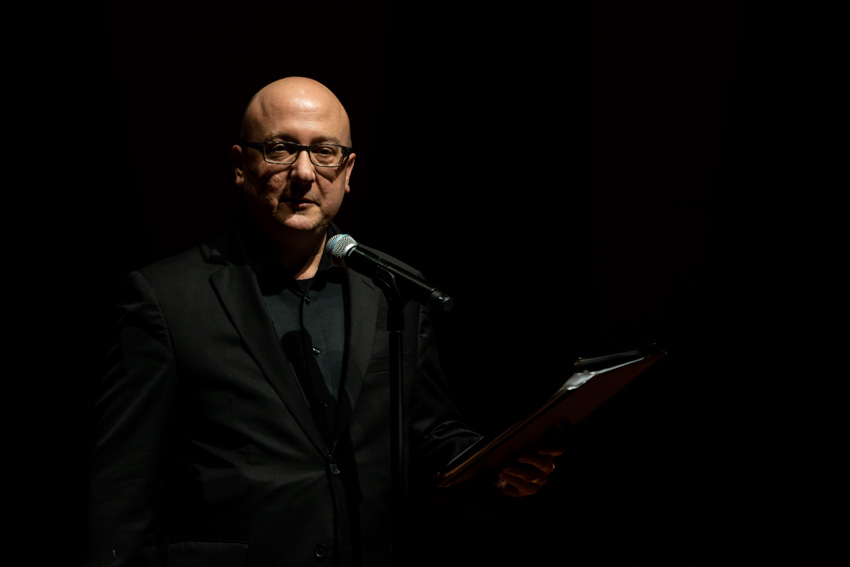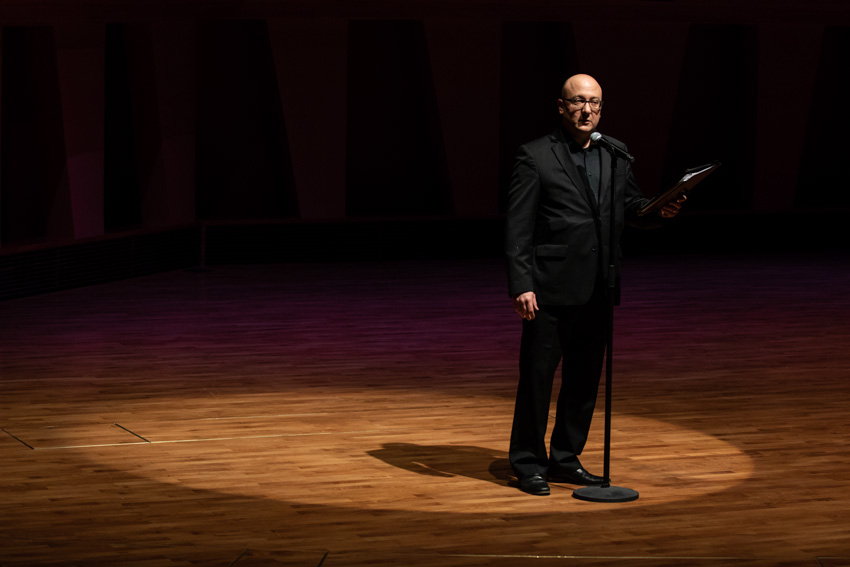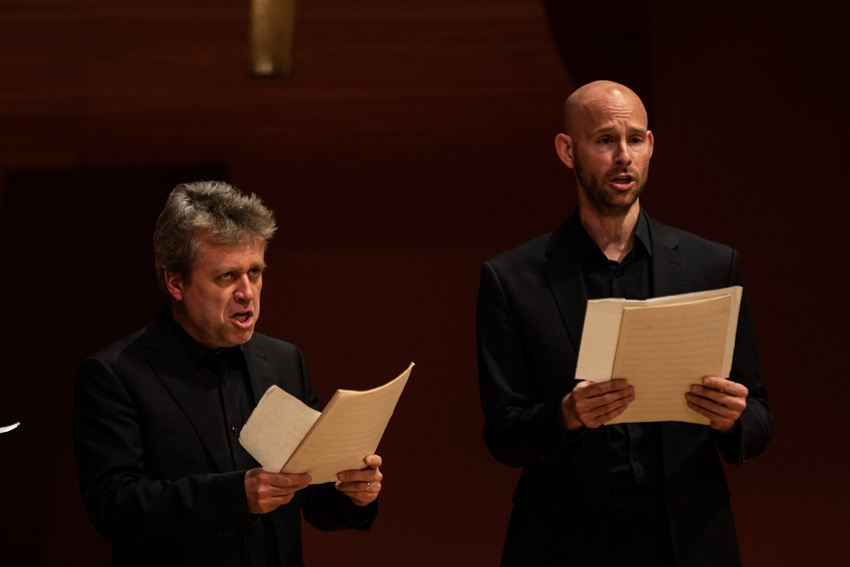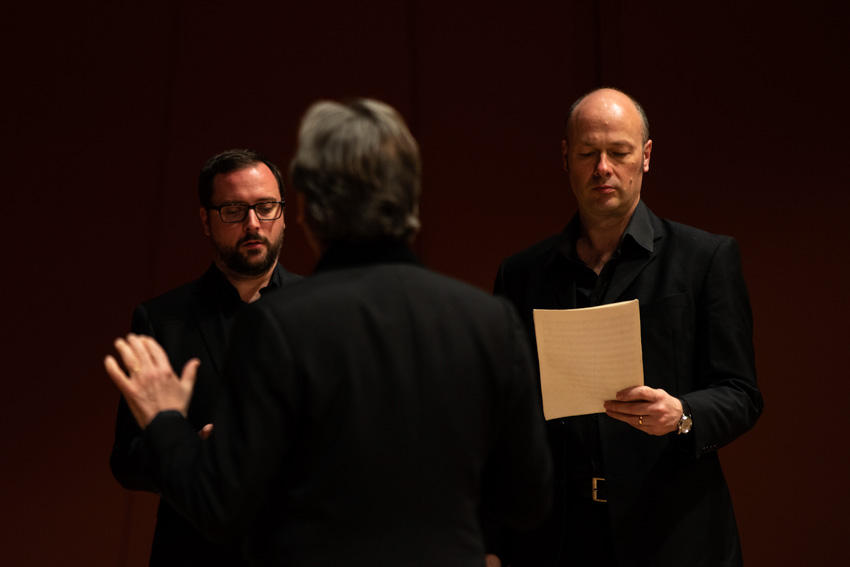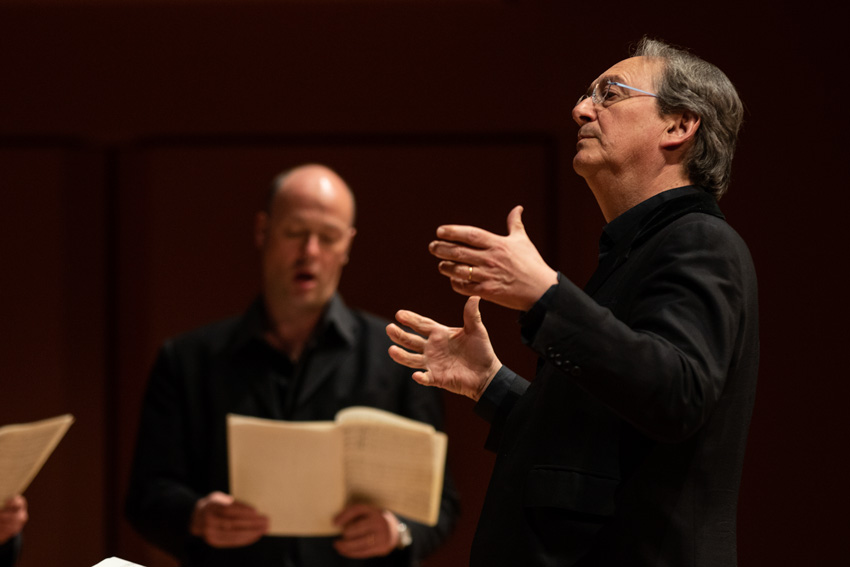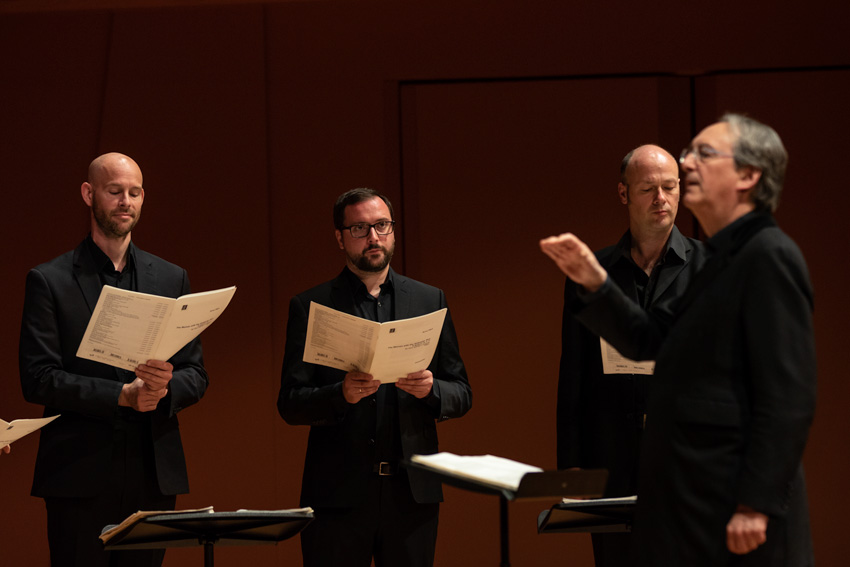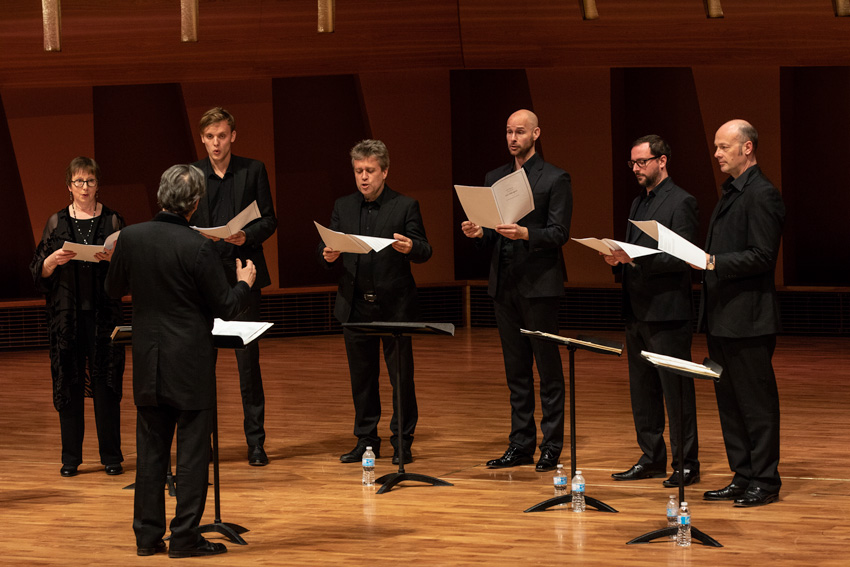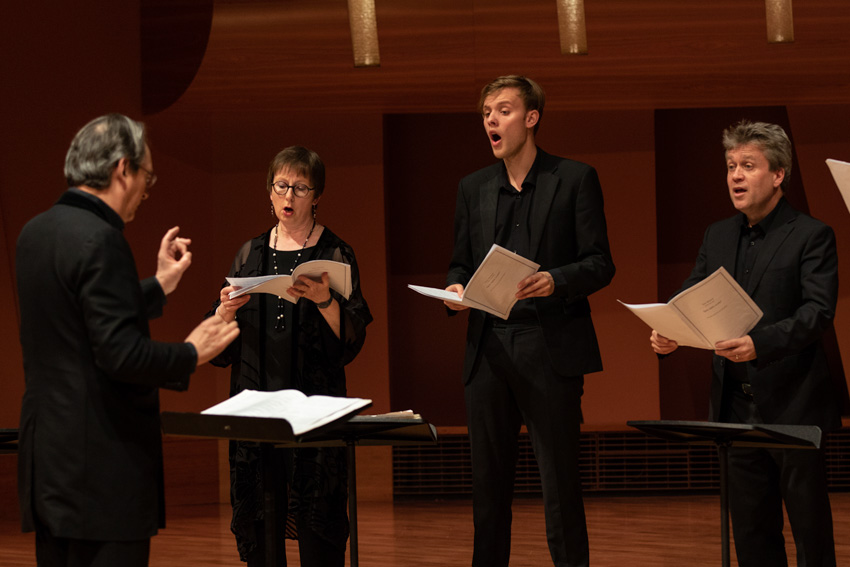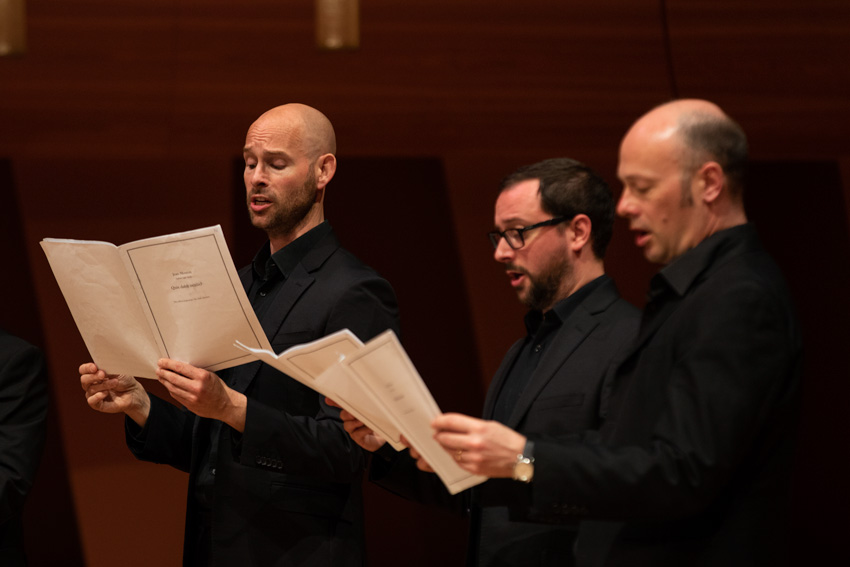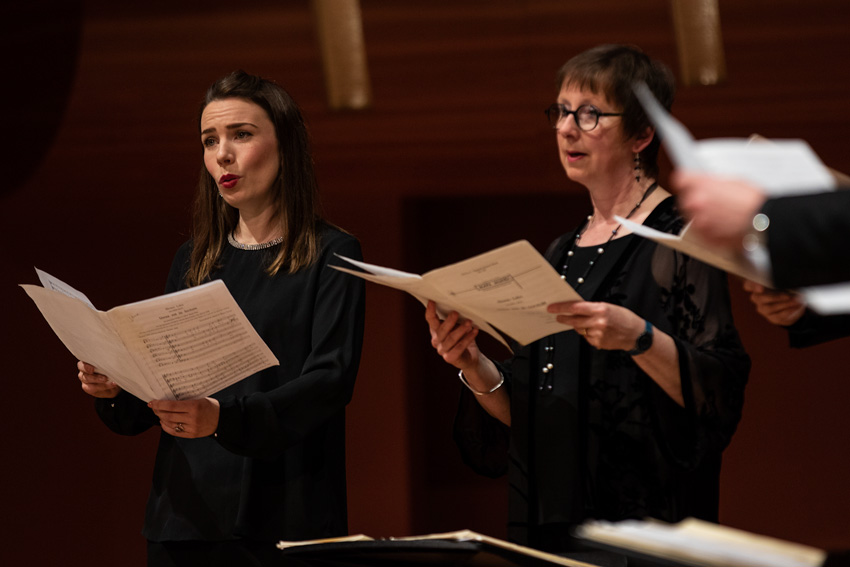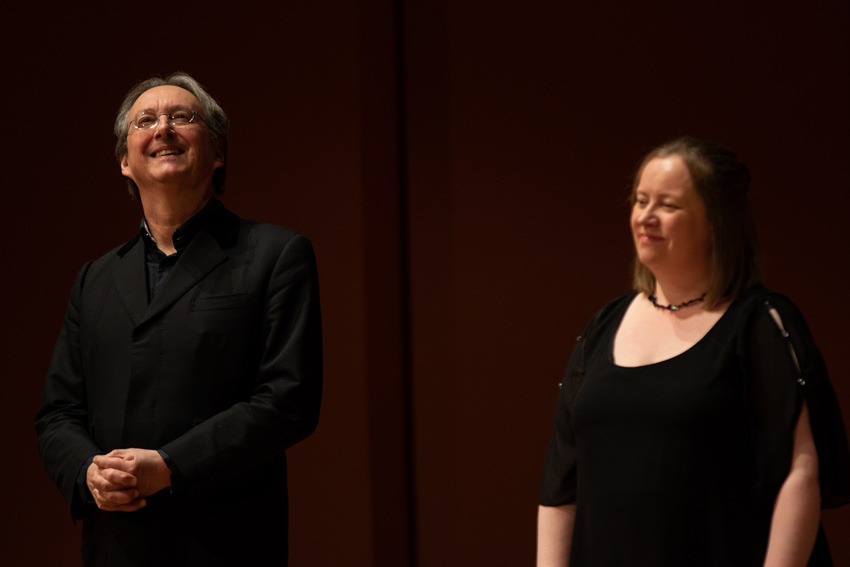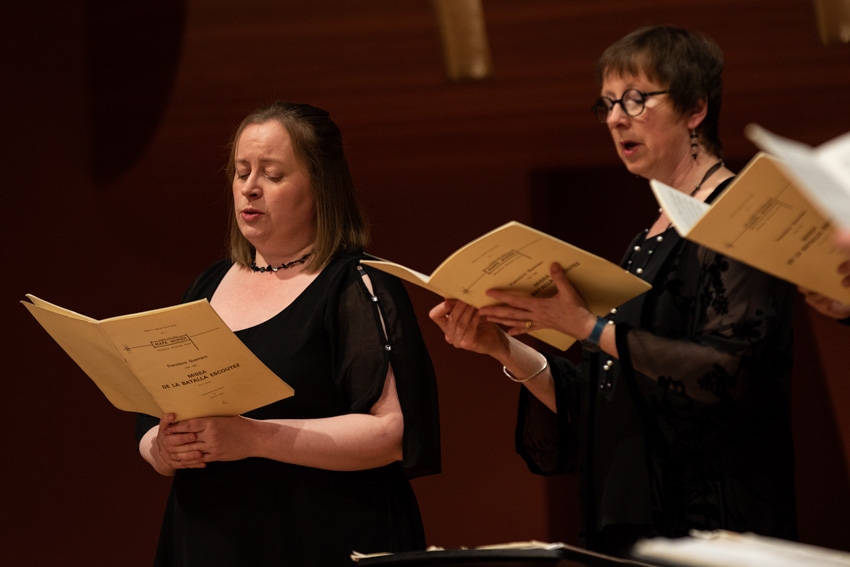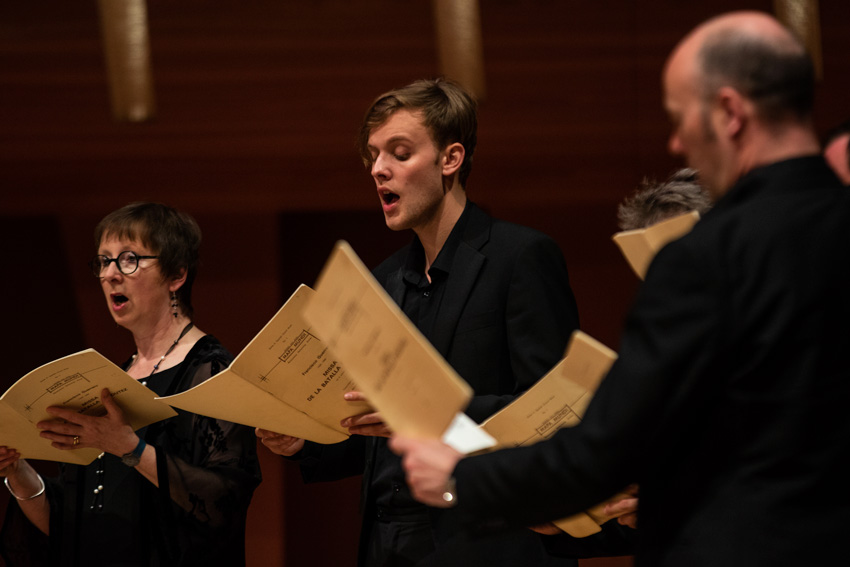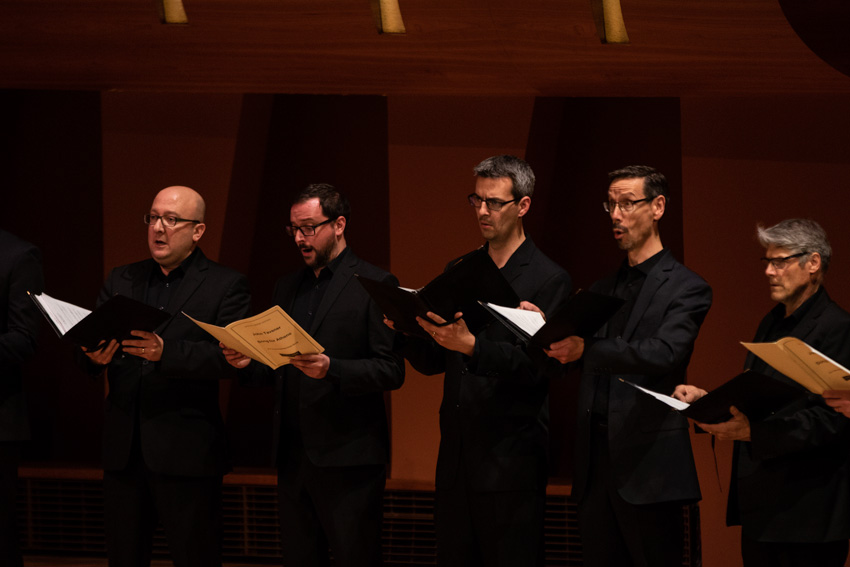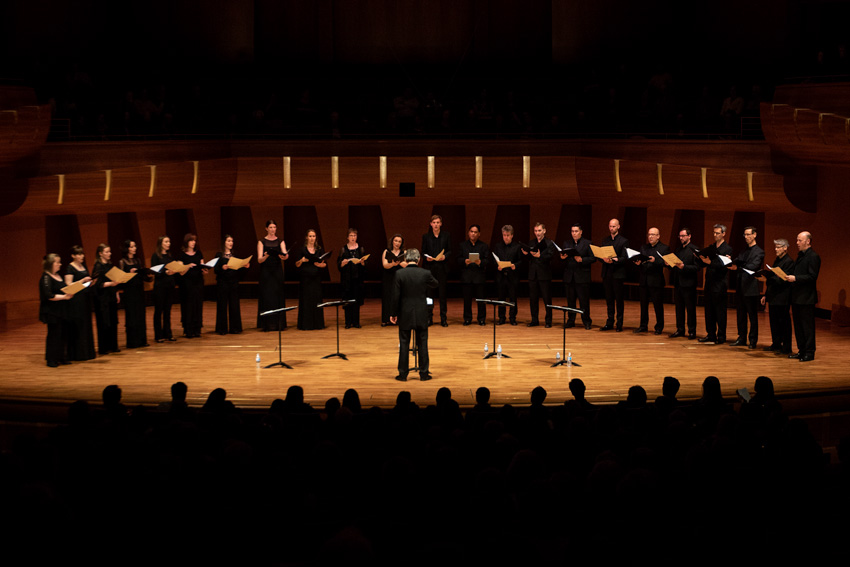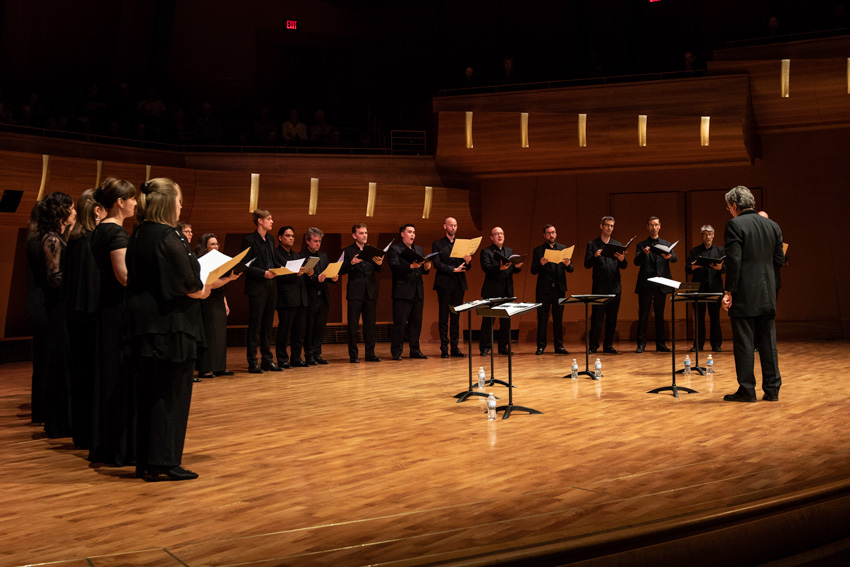
#LV BLOG ARCHIVE
Photo album: The Tallis Scholars in Calgary
Huge thanks to Jonathan Love and photographer Leonora Pena Arce of Mount Royal University for providing beautiful photographs from the recent visit to Calgary by the world-renowned Tallis Scholars!
Huge thanks to Jonathan Love and photographer Leonora Pena Arce of Mount Royal University for providing beautiful photographs from the recent visit to Calgary by the world-renowned Tallis Scholars!
John Tavener: Song for Athene
Luminous Voices is not just cohosting The Tallis Scholars with the Taylor Centre of the Performing Arts. We are also going to sing with them!
Luminous Voices is excited to not only cohost The Tallis Scholars, but also sing with them! We will be singing John Tavener's Song for Athene when the award-winning ensemble finishes its tour of the US and Canada in Calgary on Tuesday 24 April.
About John Tavener
John Tavener (1944-2013)
Sir John Kenneth Tavener was one of the UK's leading composers of religious works.
Tavener first came to prominence in 1968 with his dramatic cantata The Whale, based on the Old Testament story of Jonah. It premièred at the London Sinfonietta's début concert, which was also the opening concert of the Queen Elizabeth Hall. Other works of note is his A Celtic Requiem, which impressed Benjamin Britten enough to persuade Covent Garden to commission an opera from Tavener: the ultimate result, to a libretto by playwright Gerard McLarnon, was Thérèse.
“He could bring an audience to a deep silence which is a very rare gift. He believed that music was for everybody and was a prayer.”
Tavener's earliest music invokes the sound world of Stravinsky and the ecstatic quality found in various works by Messiaen. His later works, however, were influenced by Orthodox theology and liturgical traditions. He was particularly drawn to its mysticism, studying and setting to music the writings of Church Fathers and completing a setting of the Divine Liturgy of St. John Chrysostom, the principal eucharistic liturgy of the Orthodox Church: this was Tavener's first directly Orthodox-inspired music. Tavener recognised Arvo Pärt as "a kindred spirit" and shared with him a common religious tradition and a fondness for textural transparency.
Song for Athene
John Tavener’s Song for Athene, written after the unexpected death of a family friend, Athene Hariades, became embedded in the public consciousness after it was performed at the funeral of Princess Diana in 1997. The sincerity and impact of the words, fashioned from a fusion of Orthodox ritual and Shakespeare, together with its radiantly optimistic, alleluiatic conclusion, struck an instant chord with a grieving public.
- VIDEO: Watch and listen to the choir singing Tavener's Song for Athene at the funeral of Princess Diana at Westminster Abbey on 06 September 1997.
Arvo Pärt and the Tallis Scholars
While renowned for their interpretation and performance of music from the Renaissance, The Tallis Scholars is equally praised for bringing fresh interpretations to music by contemporary composers, including Arvo Pärt.
The Tallis Scholars sing more than just Renaissance music. The world-renowned ensemble is equally praised for bringing fresh interpretations to music by contemporary composers, including Arvo Pärt.
About Arvo Pärt
Arvo Pärt (b.1935)
Born 11 September 1935, Estonian composer Arvo Pärt is perhaps one of the most widely recognized composers of the 20th and 21st centuries. His œuvre is classical and religious in scope. Since 1976, Pärt has worked in a minimalist style that employs his self-invented compositional technique, tintinnabuli (Read our article The Tintinnabuli of Arvo Pärt from last September).
REMEMBER THIS...? Luminous Voices kicked off its fifth anniversary last fall with a performance of of Pärt's Berliner Messe.
The Woman with the Alabaster Box
Though written many centuries later, the work of Arvo Pärt owes much to the Renaissance manner of musical expression. A number of his works set passages from the Gospels, in a narrative manner that eschews overt text expression in favour of lending the words a sort of gilded clarity. The Woman with the Alabaster Box is the story of is an almost trance-like recitation, beautiful in its restraint, condensing the texture for Jesus’ words before expanding it again for the climax.
The Woman with the Alabaster Box is a setting of a Biblical text (Matthew 26: 6-13). Alabaster is a strong, dense stone, similar to marble, that can be found in Israel and the surrounding areas. This beautiful, precious stone was used to add beauty to Solomon's Temple (1 Chronicles 29:2). Because of its beauty and strength, alabaster was often used for storing precious perfume.
- VIDEO: A live recording of The Tallis Scholars singing The Woman with the Alabaster Box by Arvo Pärt at a concert in Amasterdam (01 May 2016). Scroll to 11:37 for the performance.
VIP Experience with Peter Phillips
We are just over two weeks away from hosting The Tallis Scholars in Calgary. We are pleased to offer you a VIP experience to meet its founder and director Peter Phillips following the show in Calgary!
We are just over two weeks away from copresenting The Tallis Scholars at the Bella Concert Hall! The Grammy-nominated early music ensemble, founded and directed by Peter Phillips, is currently on a tour of the US and Canada, with the final concert in Calgary on Tuesday 24 April!
We are pleased to offer a VIP experience to meet Maestro Phillips after the concert in Calgary. Tickets for this VIP experience -- as well as for general admission -- are still available but going fast! Please join us!
Alonso Lobo: Versa est in luctum
Victoria isn't the only Spanish Renaissance composer represented on The Tallis Scholars' tour program. Alonso Lobo, a composer of the later Renaissance whom Victoria himself considered to be his 'equal', composed the motet Versa est in luctum in 1598, and will be performed when The Tallis Scholars visit Calgary on Tuesday 24 April at the Bella Concert Hall.
Victoria isn't the only Spanish Renaissance composer represented on The Tallis Scholars' tour program. Alonso Lobo, a composer of the later Renaissance whom Victoria himself considered to be his 'equal', composed the motet Versa est in luctum in 1598, and will be performed when The Tallis Scholars visit Calgary on Tuesday 24 April at the Bella Concert Hall.
BIOGRAPHY
Alonso Lobo
(1555-1617)
Born in Osuna in 1555, Alonso Lobo actively composed a full generation after Tomás Luis de Victoria (read our article about Victoria's Missa pro defunctis à 6). His works include masses and motets, three Passion settings, Lamentations, psalms and hymns, as well as a Miserere for 12 voices (which has since become lost). No secular or instrumental music by Lobo is known to survive today.
Lobo's known styles range from a typically Spanish (and beautiful) blending of the Palestrinian idiom with a lively, erudite profundity to the majestic polychoral manner of Tomás Luis de Victoria. Some of his music also uses polychoral techniques, which were common in Italy around 1600, though Lobo never used more than two choirs at a time.
Lobo's legacy reaches far beyond the borders of his native Spain: in Portugal, and as far away as Mexico, for the next hundred years or more, he was considered to be one of the finest Spanish composers.
Versa est in luctum
Lobo's most famous work is the motet Versa est in luctum, which he composed upon the death of Phillip II of Spain in 1598. In Spanish liturgical tradition at the time, it was customary for a sermon to be preached at the end of the Requiem mass, before administering the last rites. In some instances, a motet was sung between the oration and the absolution. Lobo's Versa est in luctum is such a piece.
Lobo's work is for six voices, and shows the great salient features of Spanish liturgical music at the time. The composer's ideal is to intensify the meaning of the text, which was in line with the aims of the Counter-Reformation. The text vividly describes poetic imagery of heavenly harps, organs and voices in songful mourning. Out of the slow river of beautiful notes, stunning phrases sometimes emerge, or bold homophonic internal gestures divert the forward motion somewhat. The full choir is present almost throughout, and Lobo creates, with his wall of gorgeous sound, an appropriately majestic work of mourning.
TEXT
Versa est in luctum cithara mea,
et organum meum in vocem flentium.
Parce mihi Domine,
nihil enim sunt dies mei.
TRANSLATION
My harp is turned to grieving
and my flute to the voice of those who weep.
Spare me, O Lord,
for my days are as nothing.
- VIDEO: Listen to The Tallis Scholars' recording of Lobo's Versa est in luctum

